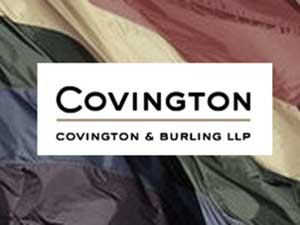
The court found that Covington & Burling had violated the rules of professional conduct in Minnesota by failing to disclose potential conflicts to 3M, even though it had previously represented 3M in issues that were materially the same as those in the present case. Having represented 3M in similar matters, the law firm was at an unfair advantage, and had a potential conflict in moving against its past client in groundwater contamination disputes.
However, the law firm objected to the disqualification and said later “our client, the state of Minnesota, will be weighing its options” and indicated a possible appeal to the ruling.
Covington & Burling further asserted, “We believe 3M failed to identify an actual conflict of interest and its attempt to disqualify the firm should, in any event, be barred because it came 15 months after the case was filed,” in the statement issued late Thursday.
Bickel & Brewer, the law firm representing 3M termed the ruling as a “resounding victory” for its client company. Bickel & Brewer stated that the disqualification of Covington & Burling in the present case was one “that underscores the importance of the ethical duties that are owed by lawyers to their clients.”
In the instant case, Minnesota has accused 3M of contaminating river and groundwater sources by releasing perflurochemicals.
3M opposed Covington & Burling from acting on behalf of the state on the grounds that the law firm had a conflict of interest, since the company had been a client of the law firm on environmental matters from 1995. However, the law firm said that even the state of Minnesota has been a Covington & Burling client on environmental matters since 1995, and that the law firm's last representation of 3M was in employee benefit matters in 2010.
However, the court ruled there is “a strong inference that 3M's confidential information has been improperly accessed by Covington and will continue to.” The judge held that before representing the state against its past client, Covington & Burling should have sought written consent of 3M. Blaeser said, “The obligation to discover, disclose and address potential conflicts of interest is, and remains on Covington, not 3M.”

